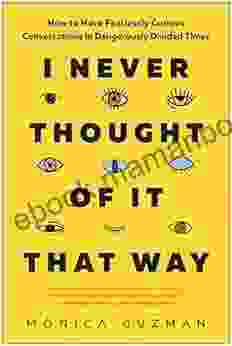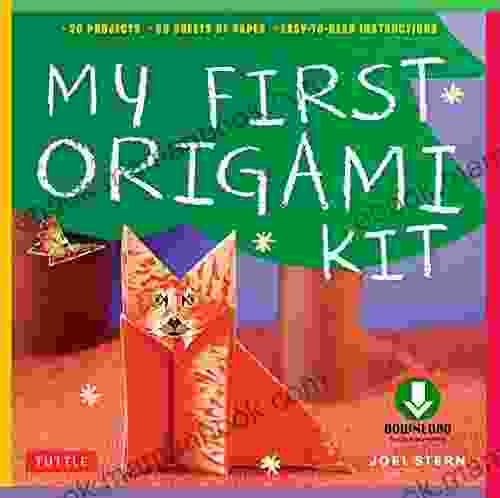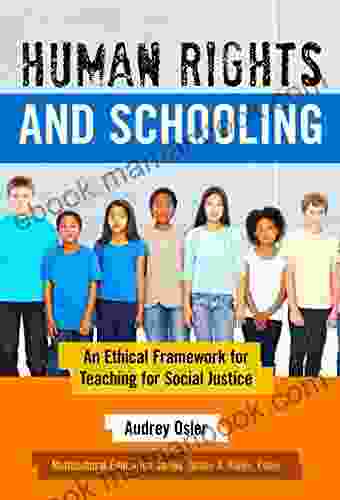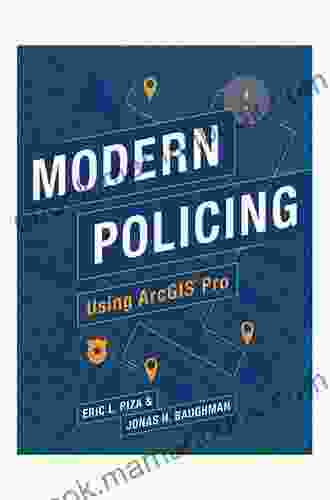An Ethical Framework for Teaching for Social Justice in a Multicultural Classroom

Teaching for social justice in a multicultural classroom is a complex and challenging task. However, it is also an incredibly rewarding one. By creating a classroom environment that is respectful, inclusive, and equitable, educators can help students to develop the critical thinking skills, empathy, and sense of social responsibility that they need to make a difference in the world.
Social justice education is a type of education that seeks to promote social justice by challenging the systems of oppression that exist in our society. These systems of oppression can take many forms, such as racism, sexism, classism, homophobia, and xenophobia.
Social justice education aims to help students to understand how these systems of oppression work, and how they impact the lives of individuals and communities. It also seeks to empower students to take action to challenge these systems of oppression and create a more just and equitable world.
5 out of 5
| Language | : | English |
| File size | : | 2610 KB |
| Text-to-Speech | : | Enabled |
| Screen Reader | : | Supported |
| Enhanced typesetting | : | Enabled |
| Word Wise | : | Enabled |
| Print length | : | 192 pages |
| Item Weight | : | 3.17 ounces |
| Dimensions | : | 5.83 x 0.15 x 8.27 inches |
| Paperback | : | 64 pages |
There are many reasons why social justice education is important. First, it helps students to understand the world around them. By learning about the systems of oppression that exist in our society, students can better understand the challenges that people from different backgrounds face. This understanding can help students to develop empathy for others and to see the world from a different perspective.
Second, social justice education empowers students to take action. By learning about the ways that they can challenge systems of oppression, students can develop the skills and confidence they need to make a difference in the world. This can lead to students becoming involved in social justice activism, working to create change in their communities, and advocating for the rights of others.
Finally, social justice education is essential for creating a more just and equitable world. By teaching students to challenge systems of oppression, we can help to create a generation of leaders who are committed to making the world a better place.
There are a number of principles that guide social justice education. These principles include:
- Respect for Diversity: Social justice education values diversity and recognizes the importance of creating a classroom environment that is inclusive of all students.
- Equity: Social justice education seeks to create an equitable learning environment where all students have the opportunity to succeed.
- Empowerment: Social justice education empowers students to take action and make a difference in the world.
- Critical Thinking: Social justice education encourages students to think critically about the world around them and to challenge systems of oppression.
- Collaboration: Social justice education values collaboration and recognizes the importance of working together to create a more just and equitable world.
There are a number of ways to teach for social justice in a multicultural classroom. Some of these strategies include:
- Creating a Respectful Classroom Climate: A respectful classroom climate is one where all students feel valued and respected. This means creating a space where students can share their ideas and perspectives without fear of being judged or ridiculed.
- Using Culturally Responsive Teaching: Culturally responsive teaching is a teaching approach that acknowledges and respects the cultural backgrounds of students. This approach can help to create a more inclusive learning environment and to make learning more relevant for students.
- Integrating Social Justice Content into the Curriculum: Social justice content can be integrated into any subject area. For example, in math class, students can learn about the history of redlining and its impact on communities of color. In science class, students can learn about the environmental justice movement.
- Encouraging Student Activism: Student activism can be a powerful way for students to learn about social justice and to make a difference in the world. Educators can encourage student activism by providing students with opportunities to participate in social justice projects and campaigns.
Teaching for social justice in a multicultural classroom is a challenging but rewarding task. By creating a classroom environment that is respectful, inclusive, and equitable, educators can help students to develop the critical thinking skills, empathy, and sense of social responsibility that they need to make a difference in the world.
Here are some additional tips for teaching for social justice in a multicultural classroom:
- Be a role model: Students learn by watching the adults in their lives. By being a role model of respect, inclusivity, and social justice, you can help to create a more just and equitable classroom environment.
- Listen to your students: It is important to listen to your students' experiences and perspectives. This will help you to understand the challenges that they face and the ways that you can best support them.
- Be patient: Teaching for social justice is a long-term process. It takes time to build a classroom community where all students feel valued and respected. Be patient with your students and with yourself.
- Don't be afraid to make mistakes: Everyone makes mistakes. If you make a mistake, apologize to your students and learn from it.
- Celebrate success: It is important to celebrate the successes of your students. This will help them to stay motivated and to continue working towards a more just and equitable world.
5 out of 5
| Language | : | English |
| File size | : | 2610 KB |
| Text-to-Speech | : | Enabled |
| Screen Reader | : | Supported |
| Enhanced typesetting | : | Enabled |
| Word Wise | : | Enabled |
| Print length | : | 192 pages |
| Item Weight | : | 3.17 ounces |
| Dimensions | : | 5.83 x 0.15 x 8.27 inches |
| Paperback | : | 64 pages |
Do you want to contribute by writing guest posts on this blog?
Please contact us and send us a resume of previous articles that you have written.
 Top Book
Top Book Novel
Novel Fiction
Fiction Nonfiction
Nonfiction Literature
Literature Paperback
Paperback Hardcover
Hardcover E-book
E-book Audiobook
Audiobook Bestseller
Bestseller Classic
Classic Mystery
Mystery Thriller
Thriller Romance
Romance Fantasy
Fantasy Science Fiction
Science Fiction Biography
Biography Memoir
Memoir Autobiography
Autobiography Poetry
Poetry Drama
Drama Historical Fiction
Historical Fiction Self-help
Self-help Young Adult
Young Adult Childrens Books
Childrens Books Graphic Novel
Graphic Novel Anthology
Anthology Series
Series Encyclopedia
Encyclopedia Reference
Reference Guidebook
Guidebook Textbook
Textbook Workbook
Workbook Journal
Journal Diary
Diary Manuscript
Manuscript Folio
Folio Pulp Fiction
Pulp Fiction Short Stories
Short Stories Fairy Tales
Fairy Tales Fables
Fables Mythology
Mythology Philosophy
Philosophy Religion
Religion Spirituality
Spirituality Essays
Essays Critique
Critique Commentary
Commentary Glossary
Glossary Bibliography
Bibliography Index
Index Table of Contents
Table of Contents Preface
Preface Introduction
Introduction Foreword
Foreword Afterword
Afterword Appendices
Appendices Annotations
Annotations Footnotes
Footnotes Epilogue
Epilogue Prologue
Prologue Gretchen Givens Generett
Gretchen Givens Generett Susan Cain
Susan Cain Maxine Beneba Clarke
Maxine Beneba Clarke Chris Pegula
Chris Pegula Robert Lamberton
Robert Lamberton Marilyn Wedge
Marilyn Wedge Yoko Danno
Yoko Danno Eloise Madigan
Eloise Madigan Christine Weimer
Christine Weimer Bruce Catton
Bruce Catton Abrahan David Zaracho
Abrahan David Zaracho Marc Dugain
Marc Dugain Bella Love Wins
Bella Love Wins Thomas Davis
Thomas Davis James And Paul Anderson
James And Paul Anderson Shantavia Denise
Shantavia Denise Stanley I Greenspan
Stanley I Greenspan Vicki Brooks Mcnamara
Vicki Brooks Mcnamara Nathan Williams
Nathan Williams Jacky Kilvington
Jacky Kilvington
Light bulbAdvertise smarter! Our strategic ad space ensures maximum exposure. Reserve your spot today!

 John ParkerPrince Ibrahim's Shadowy Involvement in Human Trafficking: A Haunting Tale of...
John ParkerPrince Ibrahim's Shadowy Involvement in Human Trafficking: A Haunting Tale of... Geoffrey BlairFollow ·19.7k
Geoffrey BlairFollow ·19.7k George R.R. MartinFollow ·16.5k
George R.R. MartinFollow ·16.5k Colton CarterFollow ·4.2k
Colton CarterFollow ·4.2k Alexander BlairFollow ·5.7k
Alexander BlairFollow ·5.7k Carl WalkerFollow ·3.4k
Carl WalkerFollow ·3.4k Eli BlairFollow ·16.6k
Eli BlairFollow ·16.6k Fredrick CoxFollow ·15.1k
Fredrick CoxFollow ·15.1k Walter SimmonsFollow ·14.1k
Walter SimmonsFollow ·14.1k

 Ross Nelson
Ross NelsonHow to Have Fearlessly Curious Conversations in...
In a world increasingly polarized by...

 Isaac Mitchell
Isaac MitchellFew Things to Keep in Mind for a Successful Introduction...
Writing an series...

 Dallas Turner
Dallas TurnerThe Ultimate Easy Key for Beginners: A Comprehensive...
Welcome to the world of...

 Mitch Foster
Mitch FosterMy First Origami Kit: Ebook Downloadable Material...
Origami, the...

 Tony Carter
Tony CarterQuick, Easy, and Healthy Recipes to Treat Gut Infections...
Gut infections are a common problem that can...

 Adrian Ward
Adrian WardThe Mechanism Behind Italian Poetry In English: Poesia...
The world of...
5 out of 5
| Language | : | English |
| File size | : | 2610 KB |
| Text-to-Speech | : | Enabled |
| Screen Reader | : | Supported |
| Enhanced typesetting | : | Enabled |
| Word Wise | : | Enabled |
| Print length | : | 192 pages |
| Item Weight | : | 3.17 ounces |
| Dimensions | : | 5.83 x 0.15 x 8.27 inches |
| Paperback | : | 64 pages |










